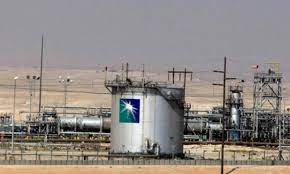Planned oil refinery in Gwadar to open new chapter of development

Beijing: Gwadar, the engine room of the China-Pakistan Economic Corridor (CPEC), is set to be the recipient of a $4.5 billion oil refinery as a Chinese firm has laid down a plan to build an oil refinery with an annual processing capacity of 8 million tons, according to the press release of the firm, the East Sea Group.
The Chinese entry came at a time when uncertainty was brewing about the fate of oil refinery in Gwadar after international players dragged their feet and went indecisive on the offer of establishing oil refinery in Gwadar.
With the matter remaining in limbo triggering ominous susceptibility on future of Gwadar development, the Chinese enterprise’s engagement to build oil refinery in Gwadar Free Zone area phase II has reinvigorated the morale of the CPEC.
East Sea Group CEO Fang Yulong, who is also Senior Vice President of Pakistan-China Joint Chamber of Commerce and Industry (PCJCCI), created a pleasant ripple while breaking the news to launch mega project of building “Gwadar Petroleum Storage and Transportation Trading Centre” during the briefing at Think Tank Session at the PCICCI secretariat, Global Times reported.
East Sea Group has sent a letter of intent to the authorities through China Overseas Ports Holding Company Pakistan Ltd, the operator of Gwadar Free Zone, saying it was ready to invest around $4.5 billion to set up oil refinery in phases.
According to sources familiar with the matter, the proposal revealed that the refinery will provide a substantial storage capacity to Pakistan, enabling it to maintain reserves for longer time and save foreign exchange. The multi-billion dollar project, upon implementation, will provide an impetus to further investment in the petrochemical industry in Gwadar.
Moreover, the proposal sought the assistance of relevant government departments to facilitate the formation and subsequent implementation of a broad policy framework to materialize the project.
In order to greenlight the mega project by the government of Pakistan, concerned institutions are gearing up to scrutinize the detailed business plan and feasibility study for further processing.
The move of launching a Chinese oil refinery seems to have encouraged other foreign investments that had stalled due to many reasons in the oil refinery sector during the recent past.
In January 2019, Saudi Arabian officials announced that the Arab nation was planning to set up a $10 billion oil refinery in Pakistan’s deep-water port of Gwadar. Later it was indicated that instead of Gwadar, oil refinery may be established somewhere else in Pakistan.
A bolt from the blue, few days back Saudi Arabia springs back into action by signaling renewed engagement to come up with oil refinery project in Gwadar. Pakistan and Saudi Arabia are inching toward signing a multi-billion-dollar deal for an oil refinery project that had stalled for the past several years, tribune.com reported. Teams from Pakistan and Saudi Arabia have been engaged in a series of meetings to finalize a commercial deal on the project, according to the report.
Meanwhile, the United Arab Emirates has also shown a willingness to set up a deep-conversion, state-of-the-art refinery that would have an output of 500,000 barrels per day in Pakistan.
Currently, there are five local players operating in the oil refining sector in Pakistan including PARCO, Attock Refinery Limited, National Refinery Limited, Pakistan Refinery Limited and Cnergyico Pk Limited. All of the refineries are hydro skimming refineries, except for PARCO which is a mild-conversion refinery.
Pakistan’s oil refining capacity is about 450,000 barrels per day, equivalent to 20 million tons per annum. Local refineries have supplied about 60 percent of the country’s requirements of diesel, 30 percent of motor gasoline and 100 percent of jet fuel for defense. The rest is imported as refined products. Pakistan has been importing significant volumes of petrochemicals, worth more than $2 billion annually, as there is no primary petrochemical production facility in Pakistan.





